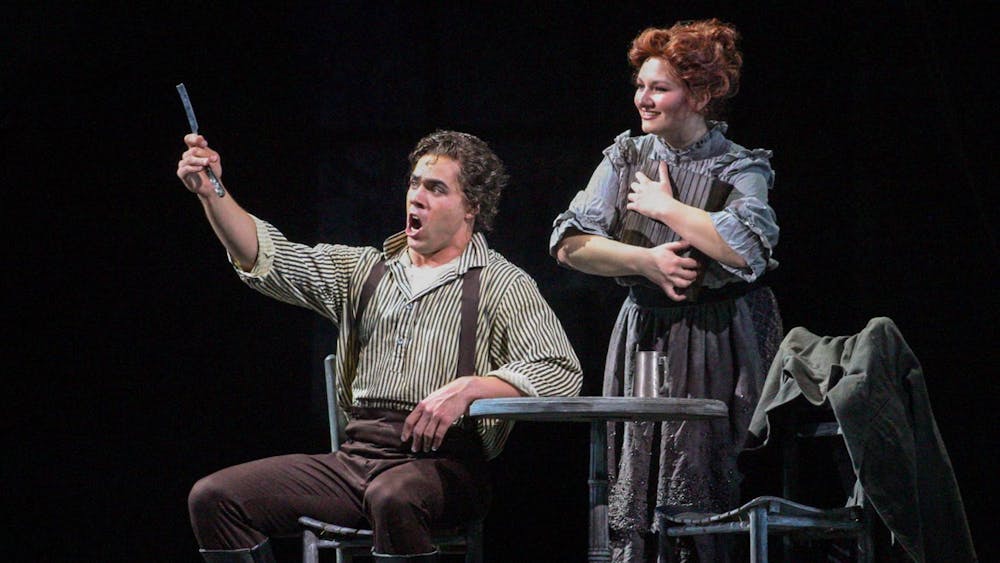Angolan writer and filmmaker Ondjaki spoke Thursday about Angolan history, contemporary life and writing.
“I am known for writing in a way with Portuguese aspects, but I do not write only in that way,” he said. “Writing is more about the dreams that we have and the direction that we have than being from Angola, Brazil or Portugal.“
This concept of writing about transcending geographic boundaries remained a prominent motif throughout Ondjaki’s talk.
Ondjaki shared a multitude of stories from his experiences of coming of age in Luanda, the capital of Angola.
“Growing up, kids used to bring empty milk cans for a substitute for desks or chairs,” he said.
Ondjaki elaborated on a variety of current problems in public education in Angola as a result of a lack of resources. He said that the biggest issues are the social problems, that only time can fix.
“We were told that pen was the weapon of the pioneer,” Ondjaki said. “Revolution was carried out through books.”
He then discussed the political and social implications of 500 years of Portuguese colonization in Angola. Onjaki said that although there was much debate about selecting Portuguese as the national language of Angola, it unites the country as remains the only language spoken in all 18 provinces.
“Angolan history is tightly connected to books,” he said. “Our first president divided his time between writing and politics.”
Ondjaki spoke about the importance of children’s literature in Angola. He said nearly all literature in Angola talks about children and parallels the youthful state of the country.
“They call my generation the ‘sons of independence’ because we are the first generation to grow up in Angola,” he said.
As a relatively young country, Angola has a lot of room for growth. The literature of Angola reflects the political and social state of the country.
For this reason, Ondjaki said that poetry is becoming extremely popular.
“Every week is seems there are new poets in Luanda,” he said. “You drink some beers and smoke some marijuana and you think you are writing poetry.”
He also reflected on the slight burden that comes with being an African writer.
“What one wants to be seen as is just a writer, not just an Angolan or African writer,” he said. “You should be free to write whatever you want.”
Professors and students alike appreciated the accessibility of Ondjaki’s talk.
“His talk felt genuine, he had a universal appeal and entertaining antidotes,” senior Jack Killen said.
History professor Marissa Moorman also attended the talk and introduced him to the audience.
“He writes in local terms while striking the innocence of all childhood,” Moorman said.
Ondjaki is currently living in Brazil, though he said he also feels inspired by his trip to Bloomington. So inspired, in fact, Ondjaki said he will complete a book of poetry entitled, “The Day of the Names and Other Poems for Bloomington.”
Ondjaki will be showing and discussing his documentary film “Hope the Pitanga Cherries Grow” at the Neal-Marshall Black Culture Center on Monday, Oct. 19 at 5:30.
Angolan writer shares mementos, politics with students
Get stories like this in your inbox
Subscribe





